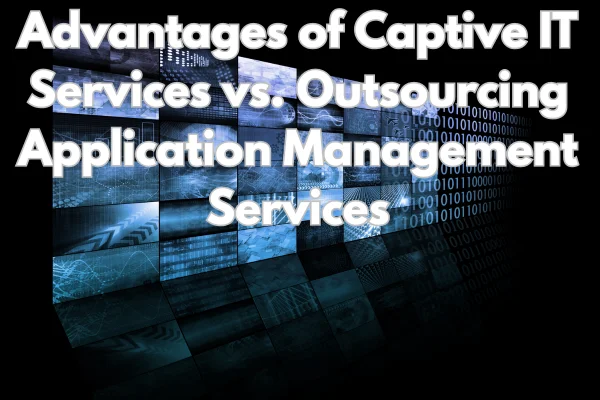
Business Process Outsourcing: Streamlining Operations for Business Success
In today's fast-paced and competitive business landscape, organizations are constantly seeking ways to optimize their operations and maximize efficiency. One solution that has gained significant traction in recent years is Business Process Outsourcing (BPO). This article delves into the concept of BPO, its benefits, and how it can revolutionize the way businesses operate.
Table of Contents
Introduction
What is Business Process Outsourcing?
The Types of Business Processes Outsourced
Benefits of Business Process Outsourcing
Key Considerations before Implementing BPO
Best Practices for Successful BPO Engagement
Case Studies: Real-world Examples of BPO Success
Future Trends in Business Process Outsourcing
Conclusion
FAQs
Introduction
In the dynamic world of business, staying competitive requires organizations to focus on their core competencies while streamlining non-core functions. This is where Business Process Outsourcing comes into play. By delegating specific processes to external service providers, businesses can free up valuable resources and focus on what they do best.
What is Business Process Outsourcing?
Business Process Outsourcing refers to the practice of contracting out specific business functions or processes to external vendors or service providers. These vendors specialize in delivering the outsourced services, allowing organizations to benefit from their expertise and economies of scale.
The Types of Business Processes Outsourced
Business Process Outsourcing covers a wide range of processes across various industries. Some common examples include:
1. Customer Service Outsourcing
Companies often outsource their customer service operations to call centers or contact centers. This enables them to provide round-the-clock support, handle customer queries efficiently, and maintain high customer satisfaction levels.
2. IT Support Outsourcing
Outsourcing IT support functions such as helpdesk services, software development, and infrastructure management allows businesses to access specialized expertise and reduce operational costs.
3. Finance and Accounting Outsourcing
Organizations can outsource finance and accounting processes, including payroll management, bookkeeping, and tax preparation. This helps streamline financial operations and ensures compliance with regulatory requirements.
4. Human Resources Outsourcing
Human Resources (HR) functions such as recruitment, employee onboarding, payroll administration, and training can be outsourced to external HR service providers. This allows companies to focus on strategic HR initiatives while ensuring smooth day-to-day operations.
Benefits of Business Process Outsourcing
Implementing BPO offers several significant benefits to organizations:
1. Cost Savings
Outsourcing non-core processes allows businesses to reduce overhead costs associated with hiring and training employees, investing in infrastructure, and maintaining specialized software. BPO providers typically operate on a pay-per-use model, enabling companies to save money by only paying for the services they require.
2. Access to Expertise
BPO vendors specialize in specific processes and possess in-depth knowledge and experience. By leveraging their expertise, businesses can benefit from best practices, industry insights, and the latest technologies without having to invest in them individually.
3. Increased Operational Efficiency
Outsourcing enables companies to streamline their operations by entrusting processes to professionals who are dedicated to delivering high-quality results. This allows organizations to focus on core functions, leading to improved productivity and overall efficiency.
4. Scalability and Flexibility
BPO provides scalability, allowing businesses to easily adjust their operations based on changing demands. Whether scaling up during peak seasons or downsizing during lean periods, organizations can quickly adapt without the constraints of in-house resources.
5. Enhanced Focus on Core Competencies
By outsourcing non-core functions, organizations can concentrate on their core competencies, which are vital for their competitive advantage and success. This strategic shift allows companies to innovate, develop new products/services, and focus on customer satisfaction.
Key Considerations before Implementing BPO
Before embarking on a Business Process Outsourcing initiative, it is essential to consider the following factors:
1. Vendor Selection
Choosing the right BPO vendor is crucial for a successful outsourcing engagement. Factors such as reputation, experience, quality of service, and financial stability should be evaluated before making a decision.
2. Data Security and Confidentiality
Outsourcing involves sharing sensitive data and information with external parties. Organizations must ensure that the vendor has robust security measures in place to protect confidential data and comply with data protection regulations.
3. Clear Communication and Expectations
Establishing clear lines of communication, defining expectations, and documenting service-level agreements (SLAs) are vital for a successful outsourcing relationship. Regular performance reviews and feedback sessions should be conducted to address any issues promptly.
4. Change Management
Implementing BPO often involves organizational changes. Effective change management strategies should be in place to prepare employees for the transition and address any concerns or resistance that may arise.
Best Practices for Successful BPO Engagement
To maximize the benefits of Business Process Outsourcing, organizations should follow these best practices:
1. Clearly Define Objectives and Metrics
Before outsourcing, define clear objectives and key performance indicators (KPIs) to measure the success of the engagement. This ensures alignment between the organization's goals and the outsourced processes.
2. Establish a Robust Governance Structure
Implement a strong governance structure to manage the outsourcing relationship effectively. This includes regular meetings, performance reviews, and clear escalation paths for issue resolution.
3. Foster Collaboration and Transparency
Promote open communication, collaboration, and transparency between the organization and the BPO vendor. This facilitates knowledge transfer, continuous improvement, and problem-solving.
4. Continuous Monitoring and Evaluation
Regularly monitor and evaluate the performance of the BPO engagement against established KPIs. This allows organizations to identify areas for improvement and make necessary adjustments.
Case Studies: Real-world Examples of BPO Success
Case Study 1: Company X's Customer Service Outsourcing
Company X, a global e-commerce giant, outsourced its customer service operations to a specialized call center. By doing so, they achieved a significant reduction in response times, improved customer satisfaction, and gained the ability to provide 24/7 support to customers across different time zones.
Case Study 2: Company Y's Finance and Accounting Outsourcing
Company Y, a mid-sized manufacturing firm, outsourced its finance and accounting processes to a third-party provider. This allowed them to streamline their financial operations, reduce costs, and ensure compliance with accounting standards and tax regulations.
Future Trends in Business Process Outsourcing
As technology continues to evolve, the future of Business Process Outsourcing holds exciting possibilities. Some emerging trends include:
Robotic Process Automation (RPA): The integration of RPA technology in BPO enables the automation of repetitive tasks, leading to increased efficiency and accuracy.
Artificial Intelligence (AI) and Machine Learning (ML): AI and ML technologies can be leveraged to enhance data analysis, improve decision-making, and deliver personalized customer experiences.
Cloud-based BPO: Cloud computing offers scalability, accessibility, and cost-effectiveness, making it an ideal platform for BPO engagements.
Conclusion
Business Process Outsourcing is a strategic approach that allows organizations to focus on their core competencies while delegating non-core processes to specialized service providers. By embracing BPO,

 English
English














